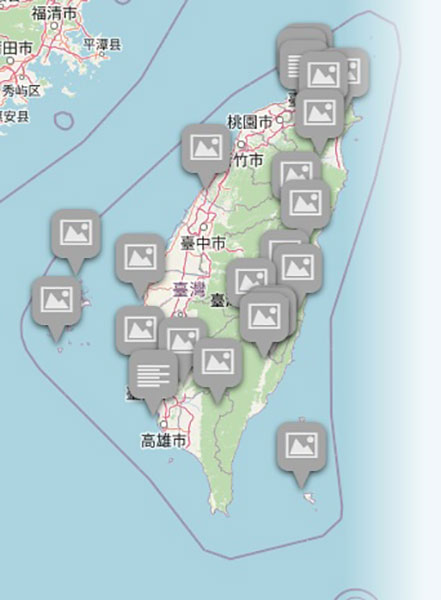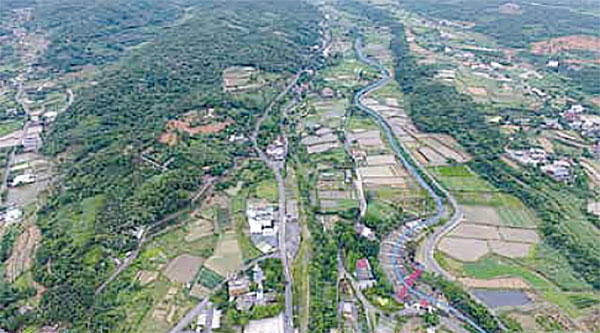Satoyama Initiative
- ◆ An Overview on the Satoyama Initiative
- ◆ International Partnership
- ◆ Satoyama Initiative in Taiwan
Taiwan Ecological Network
Satoyama Initiative
◆ Satoyama Initiative in Taiwan

in Taiwan from News&Market
The Satoyama Initiative was introduced in Taiwan in late 2010. When translating “satoyama” into Chinese, satoyama means 里山 and satoumi is 里海. This initiative quickly gained popularity throughout the country. Taiwanese people easily embraced these terms, which represent human settlements coexisting with and sustainably utilizing their surrounding environment. The Chinese character 里 (sato) is made up of two parts - 田 (farmland) and 土 (soil) - representing concepts such as “home,” “neighborhood,” or “settlement”. In Taiwan, satoyama refers to a village surrounded by low hills with farmlands, while satoumi refers to a coastal village surrounded by the ocean.

and Nature (SWAN) International; Gongrong community;
Soil and Water Conservation Bureau (SWCB); SWCB Taipei Branch;
Biodiversity Research Center, National Taiwan University Branch
Apart from the well-known case in the Gongrong community, Sanzhi District, New Taipei City, the Satoyama Initiative was implemented in numerous locations. In eastern Taiwan, the Hualien Forest District Office, Forestry Bureau collaborated with the Kavalan people at the mouth of the sea, while the upstream Fuxing Tribe was composed of the Amis people. To connect the ecological network from the forest to the coast, the Hualien Forest District Office invited these two tribes, as well as the public and private sectors, to promote friendly production of the terraced fields in the area. As a result, some tribal members have even become concerned about the coral reef ecology of the ocean, further deepening their conservation awareness.
In 2021, the New Taipei City Agriculture Bureau became a member of IPSI. Thus, the people of Taiwan will continue to work together towards the sustainable advancement of the environment, aiming to achieve a better rural economy and a higher environmental quality.